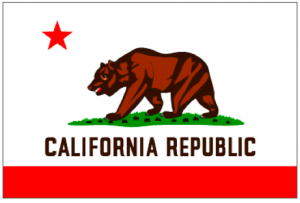
California would never be accused of being a tax-friendly state. From high personal and corporate income taxes to high sales/use and gasoline taxes to limited tax credit and incentive programs, California is consistently ranked one of the least tax-friendly states in polls.
The high tax burden that companies headquartered in California experience has led to a recent exodus of companies from the Golden State. Just this past year two major corporations, Occidental Petroleum and Toyota’s U.S. operations, announced plans to move their headquarters from California to Texas and, in the process, were able to generate significant tax credits and incentives along the way. Many people in the California legislature believe that this is just the start of businesses and individuals looking for greener pastures.
Recently, California has attempted to curtail this mass departure by encouraging the expansion of manufacturing and technology development in the state and offering a few specific tax incentives:
- Manufacturing and research and development equipment purchased or leased on or after July 1, 2014 can potentially qualify for up to a 50 percent sales/use tax exemption.
- Partial sales/use tax exemption for agriculture companies has been expanded to include companies focused on hydroponic growing.
- Nonreturnable packing materials (e.g., boxes, labels, etc.) used in the distribution process may qualify for a full sales/use tax exemption.
- Companies with employment increases in certain designated areas of the state may be eligible for an income tax incentive of up to $56,000 per qualified employee.
Each of the incentives above could provide significant tax benefits to food and beverage companies located or headquartered in California. While this is start in California, many other states have offered similar tax incentives for a number of years.
A recent discussion led by George Runner, vice chair of the California State Board of Equalization and pro-business advocate, at the 2015 Cal Tax Annual Members meeting may be of particular interest to California-based businesses. Mr. Runner called for a public discussion about the possibility of eliminating the state’s onerous personal and corporate income tax regime in favor of a sales tax on services. Clearly a measure of this magnitude could retain more California businesses, particularly those involved in manufacturing, as well as keep residents in the state upon retirement. His recent blog about this discussion can be found by clicking here.
In the meantime, California-based food and beverage companies should discuss the possibility of qualifying for one of the current tax incentives mentioned above with their tax advisors.

